|
I’m at a phase in my body where I don’t like the way I look or feel in a lot of things.
I’m not complaining—that’s just where I am. After a lifetime of struggling with my feelings about my body, I have come to accept a few things about it: (1) This body has gotten me through a lot, and it’s not a total failure; (2) It’s okay to want my body to feel or look different on my terms, and (3) My size fluctuates, and that’s okay. sometimes I can prioritize my physical fitness and sometimes I can’t. I’m eking into a phase where I can pay more attention to it, but things don’t change overnight and I’m okay with accepting where I am now even while acknowledging that I’d like to work toward feeling stronger and healthier. So. Anyway. I am in a plumper phase right now, which means some of my clothes are more snug than they were a year ago. But I have this one dress that I like to wear a lot. No matter my size, it’s flattering. Pair it with tights and some boots, maybe a necklace, and I look smoothed out in a way that I don’t in my NaNoWriMo finisher’s t-shirt and a pair of jeans. Take off the dress, take off the t-shirt and jeans, and the same squishy, lumpy body still stands in my wall mirror. Nothing changes except the way I feel about the way I look. But that in turn changes the way I present myself. I just feel more confident in this dress (Yes, I’m wearing it right now because I just got home from work!) than I would with my belly protruding over the waistband of my slacks, my arms testing the elasticity of the sleeves of my company-issued electric-blue polo. Why? I’m still the same person. I still have the same degrees, the same professional experience, the same life. But how I dress myself up makes a difference. I sold several hundred books last week. I made several hundred dollars. On my writing! I am over the moon about that! ←See, the exclamation mark means I really mean it! The book also hit the #1-#20 New Releases in a few categories, and almost made it into the Dystopian Bestsellers list. It did make it into the Genetic Engineering Science Fiction Bestsellers list. All of this is amazing! If I stop there, though, I’m not being entirely transparent with you. I’m not telling you that also on the Genetic Engineering Science Fiction Bestsellers list is a series of books that feature very shirtless, very sculpted cowboy-cyborgs on the cover. (Click the link if you don’t believe me, but don’t say I didn’t warn you.) Not that there’s anything wrong with that, just…maybe not a genre match? I’m not telling you that I’m terrified all the people who are ever going to buy the book have already bought it, and that it will fade into obscurity because either the people who buy it don’t like it enough to recommend it to their friends or because books aren’t as much a part of everyone else’s life as they are mine. I’m not telling you that I’m afraid my job is now entirely going to consist of book promotion and that I’ll never find the time to write the sequel to this book, or the hundred other projects I’m working on, or the thousand other projects that continue to inspire me despite the ever-collapsing pinprick of time available to work on them. I give you this peek behind my typically positive mask to let you know that, if you worry about the things no one can see, you’re not the only one. I can dress it up all I want—and I will, depending who I’m talking to—and that insulates other people from knowing my worries and me from having to talk about them. But take off the dress, and there they are. One thing I can say, though, is that now I have a baseline for comparison. Next book I publish, I’ll have some kind of metric of what to expect and what kinds of goals to set for myself. See there? The positivity won.
0 Comments
In a continuation of my out-of-order impromptu series on creativity, I have a brief rumination that came out of the AI discussion from last week.
Should AI/robots be restricted to doing only things that are dangerous and undesirable for humans to do? I’m thinking repetitive and easily replicable tasks, mining, idk—things that have a high likelihood of killing or maiming a person, or things that would be made much more productive by the use of a robot. To me, even that looks like lost jobs and livelihoods for the people who do those jobs. The argument, then, is that not having to work those jobs would free people up for more creative endeavors. To which I respond, “But most people don’t get paid a living wage for their creative endeavors.” In Viola Davis’ book, Finding Me, she said something like 95% of actors don’t work and only 1% make more than $50,000 per year. That’s not a living wage for a family in Los Angeles or New York, where most acting opportunities are. The same goes for writing, art, you name it. And we are living in an age where people want to consume art, but they don’t want to pay for it. Most creators can’t make a living on their creativity alone. They might work on freelancing or commissions; many, even non-writers, turn to writing (like here on Substack) to supplement their income. Of course, this is where a universal basic income might come into play…if we, as a society, were progressive enough and valued our citizenry enough to guarantee that everyone living under our umbrella wouldn’t have to worry about going hungry or choosing between back-breaking labor and personal and intellectual fulfillment. I don’t see that happening, at least in the U.S., anytime soon. What do you think? Is there a future for us where creators and our creations are valued? I’m a little shook about AI at the moment.
I’ve seen different reactions around the internet and IRL about the latest AI writing technology. Some are amazed, others are nonplussed, many are entertained. And it is entertaining, especially when you read my friend Alex Dobrenko`'s experiments with ChatGPT in Both Are True. But it’s also terrifying. A friend of mine tried out a few prompts, and they looked like the kind of vanilla thing I would have turned in for a high school (or college, let’s be real) writing assignment. No, the prose wasn’t beautiful and artful. But it was coherent enough to get the point (Yes, but whose point?) across, and unless I had personal experience with a person’s writing beforehand, I probably wouldn’t question it if they turned it in as an assignment. My daughter, in fact, wanted to write an essay about humans’ impact on the environment over break (for fun, so if you were wondering if she’s really mine, you can rest easy), and she stumbled across an AI writing website. She didn’t know what it was, but damned if the computing machine didn’t write the whole thing for her. “That’s not your writing,” I said. “But I don’t know any of these things,” she said. “That’s why you research and learn those things!” was my reply. She did end up researching and writing her own five-paragraph essay, which was pretty impressive for a nine-year-old, if you ask for my perfectly unbiased opinion. But, not so secretly, I’m worried this kind of thing will become commonplace. Don’t forget, technologically speaking, AI is still in its infancy. It’s still learning, and I have no doubt it will learn to be more poetic, more coherent, and more undetectable. Writers like me sometimes take jobs writing for companies’ websites. A business will post a request for a blog post about, for example, different kinds of snowboarding equipment, and hire someone to write it (usually for not much money, but some writers cobble together a decent income writing for many different websites). If an AI can generate an 85% usable post instantly, for cheap, complete with search engine optimization, why would a business pay for an expensive, potentially unreliable human to do it? I actually see this as a pretty big threat to the writing gig economy, which is one of the only ways beginning writers are able to make an income. As far as novels, I have to assume people would rather read one written by a human than a robot, but you never know. “My kids don’t need to learn to write anymore,” said a friend of mine, but I think it’s much worse than that. Artificial intelligence can already replace some forms of writing. But, for kids growing up with AI, it has the potential to replace deep thought. And that scares me. I love LEGO. I never had any of my own, which only made it that much more exciting when I came across some at other kids’ houses, or the doctor’s office, or wherever else you find the little building bricks.
But every time I sat down to build, I came up blank. Same with Lincoln logs or any other building toy. All I could think to build was a house/castle, and I had no idea how to build one with the pieces in front of me. Drawing was often the same. Give me a sheet of paper and a pencil or some markers, and my image was (okay, still is) some narrow iteration of a house with a tree next to it and a sun in the sky—and, if I’m feeling particularly creative, a grass lawn dotted with some—idk, tulips? Jump ahead 20 years. I might have been the only kindergarten teacher in my school to not add an imaginative play station into my students’ rotations; I just didn’t understand the value. And another 10 years on, when I had my own children, I didn’t know how to play with them either. I would draw with them (if there’s some kind of tutorial). I’d push them on the swings or build something out of popsicle sticks (as long as the kit came with instructions). But as soon as the Barbie dolls came out, alarm bells sounded in my mind. I, like, really can’t do it. My daughters, now tweens, would build a whole world with their friends where they were puppies going to puppy school, and they had to do certain assignments. They followed a precise schedule. There were special voices and a whole set straight out of the drama department. And when they all got called away for dinner, they’d pick right up where they left off next time they all came together. Good thing they had each other. But then something happened. Or a lot of things, really, and I find them culminating as I spend time with my two-year-old son. The short version of this is: I became a writer, and I had another baby. Since college, my writing has always been very Point A→Point B. Clear, direct, cause-and-effect. Clinical and describing something I observed. But then I imagined a scenario and I discovered a question: “What if?” What if there were a cabin in the woods that was the only connection between two dimensions? What if that cabin brought together two people who thought they’d lost each other forever? This is the premise behind my first book, The Space Between, which will eventually be finished… But since that first seed of an idea, the same thing has happened over and over, and for me, this is where stories are born. After having my son at the beginning of the pandemic and racing against the clock to get a Social Security Number for him, I thought, “What if there was a boy born just before the apocalypse who never existed on paper but became a mercenary after losing his entire family?” When I was thinking about pregnancy monitoring, I thought, “What if artificial wombs become consumer grade?” Of course, if you know anything about When We Were Mothers, you’ll recognize that one. After that initial question, the “What-if” train builds momentum until I have a full-fledged story on my hands. And, when I get stuck in the construction of that story, I grab a shovel and start heaping coal into that same engine. What happens after X dies? Y pushed Z into a vat of burning oil. Now what? I am always astonished at my son’s imagination when he plays with his toys. I don’t understand everything he says, but he has so many interesting conversations with his toys as he’s playing with them—often involving digging and transporting dirt and rocks and putting out imaginary fires—and I find the whole thing really fascinating. I was playing firetrucks with my son the other day, and the LEGO Duplo blocks were out. “Wanna build a fire station?” I said. We had no blueprint for that fire station, but we grabbed some blocks and started building. “What else do we need?” I asked when the basic structure was up. He asked for a dog because of course he did. Do I know how to build a dog out of LEGO Duplo blocks? Nope. But did we figure it out? You bet we did. I’ve noticed this enhanced in other areas of my life, too, and I’m ready to call it: This little game has been a game changer for me. Next time you’re out and about, look at something you don’t typically contemplate, and come up with a What-if of your own. You never know what will come of it. I’ve been waiting for this all day. I did the breakfast thing, the making-the-kids-lunch thing. My coffee has long been drained. I’ve been playing with my toddler for hours. I even went for a walk. But now, for two short hours, the house is quiet, and it’s my time. It’s time to write.
I straighten my notebooks and organize my pens. I shove everyone else’s crap from my desk to the floor and put on the sweatshirt that’s draped over the chair. (Am I the only one who gets freezing cold when I’m writing? Seriously, it’s a disability.) I sit down, fingers poised over the keyboard, blank document open on the screen. I have precious little time. But where do I start? The answer to that question is another question — the essential question for anyone who writes blog posts, personal essays, or anything else people want to read. What am I struggling with right now? Well, hold on a second. What is that about? Why does something have to be going wrong in my life for me to write? Can’t I just write a quick story about how things are mostly fine for me at the moment? I could. It’s just that nobody would want to read it. This is really irritating for some writers. Many of us read through submission requirements with a scowl. “What do you mean I need to be helping the reader solve a problem? This is a beautifully written story about the time I went snowshoeing in the Adirondacks.” And it probably is very well-written. I bet your descriptions paint a picture of the landscape and convey what you saw and maybe even how you were feeling at the time. I bet it sings to you. But writing on the internet isn’t about you. When you put something on the web, you’re putting it there so someone will read it. Otherwise, why put it there? And, when you’re writing for an audience, even your most gorgeous, lyrical writing won’t be seen, much less read, unless you’re answering a question or solving a problem for the reader — something that someone might type into a search bar and click the first couple links that appear. I’ll be candid: That’s why I don’t often put my short stories on the internet. Even if you enjoy a good work of fiction, when was the last time you typed, “short story,” into Google? Never? Thought so. And if you happened upon a short story about a girl and her pet chicken while looking for the answer to, “How to tell which of my hens isn’t laying eggs,” you’d bounce out and look for something relevant. Writing on the information superhighway has everything to do with the reader and very little to do with the writer The second you decided you wanted to publish your words alongside everyone else’s words, you gave in to the singular premise that, if you want to be read, if you want to make money, if you want people to know your name and pass along your work to their friends, family, and colleagues — you can’t just tell cool stories. Sure, if you infuse yourself in such a way that people can see themselves in your writing, they’ll enjoy it more. If you showcase your sense of humor, they’ll be entertained. But if you don’t help them with something in their life while you’re at it, you might as well be writing in your journal. Instead of typing up amusing anecdotes and sending them off into the black hole that is the blogosphere, and then wondering why people aren’t knocking down your door for more, you’re going to want to change your approach just a hair. How? With another question, of course. Why should anybody care about this? You don’t need to throw up your hands and hit delete on all your cool stories quite yet. Instead, take a look at the story and try and figure out why it’s important to you. The story could be — as some of mine are — something that was really funny in the moment to someone who knows all the players, but would require too much background for the reader to make writing the story worth it. Or, maybe during the course of the story, you learned something about yourself or the world — something you can generalize in a way that will help others experiencing the same dilemma. Maybe you learned something about your relationship with your grandmother, or the meaning of life, or why seltzer is so satisfying. If your answer is the latter, then it might be that your story just needs a new ending, one that makes a connection between you and your reader in a way that benefits them. Other questions you can ask:
I discovered Bohemian Rhapsody when I was six years old. Around the same time, I discovered I could carry a tune. Or I imagined I could carry one, anyway. You'll have to ask my (very tolerant) family members for their opinion. I'm sure they'll give you the unbiased truth. Whether or not I was any good at singing, after that day, you couldn't shut me up if you tried. I had found my calling. I would grow up to become a professional singer. I learned every single word to Queen's Greatest Hits album, of course, but I didn't discriminate. Small town Missouri doesn't exist without country music, and so I made quick work of adding Randy Travis and The Judds to my catalog. My parents listened to rock in the car (I almost said classic rock, but it wasn't classic back then!), and in went Aerosmith and John Fogerty. During P.E. in middle school, my friends and I would sing Green Day songs as we did our jogging warmup. In high school, we would take over one of the classrooms to sing sad, sappy Jewel songs in floppy harmony. I sang in the car. I sang at work. I sang in the aisles of the grocery store. I'm sure my compulsive vocalizations caused their fair share of annoyance, but most people were kind enough not to say anything. "You've got a great voice," someone would occasionally say. "Thanks," I'd say with a grin, my heart swelling with validation. Breaking news: I didn't become a professional singer. I graduated from college and went into Teach For America and moved to California and made a bunch of cool friends who did crazy things like leave the house on the weekends - something to which I was wholly unaccustomed. I'd never been to many bars - I'd graduated college at 20, and ID requirements in Boston were strict. But here I was, a 22-year-old with a group of twentysomething friends doing what people like us apparently did on Friday nights: go to the bar. And at one of these bars, there was a sign, written on the chalkboard over the stairs to the lower level. Karaoke tonight. ↘️ "Karaoke! I love karaoke," said Christina. "You should totally sing," said Rachele. My heart exploded for a second. I'd never held a microphone in my life. I couldn't imagine standing in front of all these people, whose attention would surely be concentrated squarely on me, and doing ... what, the exact same thing I did every other day? Meh, what the hell. I grabbed a song book and a quarter-page slip of paper and a golf pencil and retreated into a corner of the bar to pick my song. See, here's the thing about karaoke: you can know every word to every single song on the planet, and the minute you get the coveted karaoke book in your hands (Do you want "By Title" or "By Artist?" Big decision!) your mind becomes applesauce. I must have sat for half an hour with that book in my lap, flipping through and trying to find literally any song whose tune I knew well enough to sing it. And, finally, I found it. Killing me Softly by the Fugees. I loved that song! "Nicci, you're up," said the DJ and then he whispered in my ear, "The Fugees version is scratched. Is it OK if you do Roberta?" I nodded enthusiastically. I'd been watching a lot of Hugh Grant's "About a Boy" at the time. Not to spoil anything, but there's a lot of "Killing me Softly" going on in that film. I could definitely do this. But when the music started, I realized something. I'd heard this song a thousand times, but I didn't actually know it. I knew none of the words, or how they went with the music. So I just stood there, mumbling and trying not to cry, with the redness creeping from my chest all the way to the top of my forehead, until the song was over. The only consolation is that, aside from my friends, everyone in the bar was so busy with their drinks and conversations, my colossal embarrassment didn't even register. I spent the next five years seeking redemption for that failure of an outing. The pub down the street from our apartment had karaoke every Sunday night, and my friends and I would venture out when there was a Monday holiday. We pushed through throngs of sweaty 40-year-olds to play tug-of-war with the song books and put in four requests at once. I built up a list of go-tos, sometimes singing duets with my friends, the regulars, or the host. Roberta Flack's version of Killing Me Softly made the cut, but only after I'd sung it a thousand times alone in my car. Eventually my friends and I became the regulars. We found other singing spots, too. We knew who had the best catalog and who was using digital equipment instead of CDs. My bachelorette party even contained a stop at a karaoke bar, and somewhere, there exists a terrible-quality mp3 commemorating the occasion. That was all before gender reveal parties and school drop-offs, when Monday holidays meant we could sleep it off until noon and wake up with a Bloody Mary and go hunting for a fried-ass breakfast. Fast forward to 2016. I was a mom and a school administrator living in Boston. Even if I'd known where to find karaoke, only in my dreams would I have been able to go sing. But it was February, and I was off the coast of the Dominican Republic. On a cruise ship. Hear me out. I know literally zero people who would dream of getting onto a floating petri dish with a few thousand strangers in 2022. But remember, this was years ago, and Sail Across the Sun was not just any cruise - it was a music cruise with multiple concerts every day. The smallest ones contained only a couple dozen folks, and you got to meet and chat with the artists between sets. If you arrived early enough to the biggest ones, you could get a spot right next to the stage. And, of, course, there was karaoke. More than ten years after my first embarrassing showing, I found myself descending another set of stairs into a huge lounge with a stage at the front. From there, it was all muscle memory. I didn't need to spend a half-hour thumbing through the book: I knew exactly what I would sing. And before I could finish my first drink, I was up. At first, my fellow travelers sipped their drinks and kept on with their conversations. With the first chorus, though, things changed. Heads turned and eyebrows raised. People started moving and singing along. "All right!" someone said. By the last note, the area around the stage was packed. The applause was like a warm, validating hug. I turned to leave the stage and was face to face with the lead signer of the biggest band there - someone whose voice and whose music had moved me through two decades. "That was fucking awesome," he said to me. "You have an amazing voice." If I hadn't already slid the mic back into the stand, I would have dropped it right there. Because what better way to cap off my karaoke reunion tour than with a hug and an endorsement from my favorite artist? Subscribers to my newsletter this week will get even more fun karaoke stuff like my song list and some embarrassing photos from those days, if I can dig them up. Don't forget to sign up using the form on this page or by clicking here!
I wasn't always this way. I don't think I was, anyway.
I have vivid memories of getting cross-stitch kits from Wal-Mart when I was a kid and meticulously working on them until the very last stitch. I started reading books and then, in short order, finished them. I persevered through crossword puzzles and brain teasers and exquisitely complicated math problems until the very end. But then, at some point after I became an adult and got busy, after I had kids and got even busier, my husband came up with a nickname for me. Eighty-percent Kadilak. Oh, my. It's embarrassing to even write those words. It feels indicative of some shortcoming of mine, the inability to see something through from start to finish. In reality, it's more of a commentary on our times and the constant barrage of priorities I've got coming at me with no real means to sort them out. Regardless of the reason, without meaning to, I somehow turned into a person who gets really excited about something and throws all my energy into it for a while, and then gets distracted by some other new, shiny object and casts it aside. Kind of like how I'll get really into cleaning the bathroom and get most of the way finished with it, and then have to go attend to the dishes and call the bathroom with a clean shower and toilet but a dirty counter good enough for now. Back in 2018, I started writing a book. No, not The Other Women. Another book. It's called The Space Between, and it took up all my mental energy for several months. I loved that book. I loved the characters, I loved the story, and I loved the setting (a lot of it takes place on a college campus in the 90s). I worked on it on the train to and from work, and I worked on it after my kids went to bed for the night. I talked about it and sent sample chapters to practically everyone I know. Then I got this other idea and followed it away from dear Evan and Audrey and toward this new dystopian utopia I'd imagined. I drafted TOW over six weeks at the end of 2018. Start to finish, I worked on that story every single day. Even the days when I was sick in bed with strep throat, or norovirus, both of which happened that month. Even the days when I was in Disney World with my family, I managed to get a few hundred words down. It was hard work, and it took a lot of redirection, but at the end of those six weeks, I typed the magical words, "The End," and I felt a rush like I never had. I'd finished it! I'd written an entire book! I'm going to have to pause for a second here and say that I was always a terrible student of the writing process. As a perfectionist, I refused to believe in revisiting an assignment after it was finished. I was perfectly capable of doing it right the first time, and my grades were evidence of this point - I never made any changes to my work after that first draft, and I got As all around. The first draft of The Other Women was not A-level work. If I'd published it as-is, I can imagine all the one-star reviews it would have earned, and for good reason. There was so much missing. I spent another couple months revising. Or editing. I'm still not sure I know the difference. I had no idea what I was doing. I took a novel writing class, where I learned to be a thousand-times better writer, and during which I did another round of edits. I had a baby, and there was a pandemic, and still there I was, writing and revising and editing. I wrote "The End" at least four or five times during this process, and each time the phrase came with a mix of elation and disappointment. I was so proud to have finished something - but it seemed like I'd finished it over and over again, and I still wasn't really done. When would the real end come? And then I talked to a writer friend, Peter, who gave me some advice I think every writer should keep in mind - especially the ones who think it's possible for every single word of their work to be perfect. He said, "Everything you write has the potential to become an eternal work in progress. Don't let it! It's like cutting hair, you can't keep cutting it." All those edits had made the work better, and there are still improvements to be made, which is why I'm going through one last round of minor edits before calling the manuscript done-done and leaving it the heck alone until the inevitable professional edits that will be required if I sell it to a publisher. I've gone from refusing to take a second look at my work to being unable to move on to a new project because this one's not perfect. From abandoning projects to sticking with this one for perhaps too long at the expense of other work I could be doing (and neglecting some ongoing projects like my blog, my articles, and my newsletter as I fuss over the right word to describe the shape of someone's face). At some point I have to find the balance and confidence to stand behind my work and move on. Thanks to Peter, I'm almost there. Writing is so easy. You just put words on a page, and as long as they sound nice next to each other, you're doing great. If it sounds good and makes sense to the reader, do you really need to do anything more?
Yes. Yes, you do. Because there is a big difference between intelligible writing and good writing. I come from a science background. While I apparently used to write a whole lot when I was in middle and high school, most of the writing I did after my frontal lobe developed was in the form of lab reports and... well, more lab reports. I can string words together with the best of them, but I wouldn't call myself creative. As an adult, I've written things like school handbooks and student spotlights and even website copy, and I've done a fine job. I've even been complimented on my writing, which is funny because I'm basically just talking onto a computer screen. But it's one thing to detail the materials and methods for a science experiment or detail the varied accomplishments of a ninth grader. Writing words that evoke emotions and get readers invested in your story is an entirely different thing. It's the difference between grabbing a magazine, reading a paragraph, and tossing it back on top of the stack, and rushing home after work so you can cozy up on the couch with a blanket on your lap and your book in your hand. I don't know if I've ever finished a magazine article. There are books on my shelf I've devoured in a handful of hours. Best I can estimate, the difference comes down to description. How the writer describes the setting, the events, the character's feelings and reactions, makes a huge difference in the way we connect with the writing. Am I reading a list of details, or am I experiencing them the way the character would? Am I reading the way the character felt, or am I feeling it for myself? The closer I can get to experiencing exactly what the character does, the more connected I feel to the story and the more likely I am to finish whatever it is I'm reading. I wrote an essay recently for entry into a competition. I spent a good deal of time on it. It was good. I got really great feedback on it from my beta readers (read: a handful of friends who are gracious enough to read my drafts and encourage me through all my self-doubt). But I knew there was something missing. A writer friend and my favorite editor of all-time gave me the push I needed. "It needs to be more vulnerable." How do I do that? I bring the reader along with me. Instead of telling the reader I felt frustrated, I needed to describe the feeling that frustration gave me: "Rage sweeps through my veins and it’s only because of the effort it took to get three children to sleep at a reasonable time that I don’t explode ten years of frustration all over the room..." Rather than telling the reader how anxious I get leaving my kids with someone while I work, I get specific: "Do the kids have all their school supplies? Is the baby crying too much? Eating too little? When there’s an issue with one of the children, or with the babysitter, I leave and come home." I didn't talk about the cold leather sofa where I was sitting. I used details of the sofa in my story to bolster the emotional resonance I was describing: "I blink, and tears roll down my cheeks, soaking into the blanket I’ve wrapped around myself. Worn leather stretches between us in a gulf so wide we might as well be on opposite sides of the world." I watched a video from one of my favorite writers and humans, Rachael Herron, yesterday, that aligns pretty perfectly with this aim: Get Rid of the Word Felt. When you're telling the audience how you (or a character) felt (or what they thought, realized, smelled, tasted, etc.), you're increasing distance and decreasing empathy between reader and character. "I smelled chocolate" might become, "I inhaled great gulps of the aroma from the nearby chocolate factory every time I surfaced for a breath." "Lucinda felt a sharp crack at the base of her skull" could instead be, "A sharp crack at the base of Lucinda's skull sent her vision into darkness." You get the picture. Readers, don't think about this too hard. I'm famous for ruining reading with all my talk about writing craft, but I don't want that happening to you. However, if you find yourself immersed in someone else's writing, I can bet part of the reason is that they've allowed you to get nice and close with the character. Writers, think about this quite a bit. If you're writing something other than a scientific paper, I am willing to bet your work could benefit from a quick pass for closeness. A few small tweaks might be all you need to take your reader by the hand on your journey rather than making them sit in the audience. As always, I would love to know your thoughts as readers and writers in the comments below! (Oh - did I mention, that essay won an award? Casual.) Six twenty-three in the morning. I lie in bed, motionless. My husband snores softly from the opposite edge of the king-size bed. Between us, the baby’s breath has settled into that deceptive rhythm that teases me into believing maybe I’ll be able to sneak out and get some work done after all.
I slide my hand out of his grasp and he moans. But it’s a sleepy moan, I tell myself. There's still hope. I move my leg away from him, preparing to slide down the side of the bed and onto the floor. He throws his entire body onto my chest, an adorable and infuriating answer to my Hail Mary attempt to, just for a half-hour, exist as a complete entity unto myself. My watch is heavy on my wrist; my glasses signal to my eyes, even in the barely-breaking light, that we’re up. But my arms are pinned under and around 35 pounds of warm, sweet frustration. All I can do is think. It’s the most inhumane torture I can imagine, thinking all the words in the world with no way to get them out of me. All these fantastic ideas, whooshing in and out of my brain, and nowhere to capture them. That’s the curse of the writer: some of our best words slip right through our grasp, no matter how committed we are to holding on. I set my alarm to 6:00 this morning, thinking surely I would be able to fit in something before the kids woke up. In the last few months, I’ve gotten really good at modularizing my time, only taking on a task I know I can finish in the time I have at my disposal. Ten minutes? Social media post. Half-hour? Newsletter. Naptime-worktime? Blog post, maybe an article. Full-day? Bahahahaha! Who am I kidding? I can’t remember the last time I had a full day of writing. Probably before the baby was born, 18 months ago. But even those predictable, bite-size chunks assume that the time I think I have, is the time I actually have. And when I open up the computer at 6:10 and my child wakes up at 6:20, I haven’t even gotten a chance to log on to all my services before I have to cast aside my list and go tend to someone else’s. “Could you get up early and work before the baby wakes up?” my husband asked me once. He was trying to be helpful, optimistic. After all, he gets up early and does his own morning things before the kids are up. But that is never the way it has worked for me, and nearly all the days of the last few months have provided stacks of evidence to support that fact. He got frustrated with me then, saying it seemed like I was giving up and dismissing the idea out of hand. But I wasn’t. I was being realistic. Maybe he can count on that time, but I can’t. And as soon as I start to, I am disappointed and angry and resentful because, more often than not, it gets taken from me. As I lie here in bed, plans to work thwarted yet again, I respond to that gentle snore with a silent “I told you so.” I guess I’ll try again tomorrow. On May 1, 1994, a crash at Italy's San Marino Grand Prix killed Brazilian Formula One driver and three-time world champion, Ayrton Senna. The day before, fellow driver, Roland Ratzenberger of Australia, died during qualifying at the same track.
Prior to this weekend, it was a given that anyone who got behind the wheel of an F1 car was putting his life on the line. That might sound hyperbolic, but a look at the list of Formula 1 fatalities will show that there was an average of 1 death each season for decades prior to this fateful weekend in 1994. The sport attracts the best drivers in the world, but there are only 20 of them. So if you took a spot on a team back then, you had a 5% chance of dying at work. After Senna's death, the sport did a ton of research into improving the safety of the cars, the tracks, and even the racing suits the drivers were wearing. There are penalties for driving unsafely, and generally the guys understand the gravity of what they're doing and their responsibility to each other. Nowadays, you can watch a race and be reasonably certain everyone will stay safe. It's this I was thinking of as, once again, I was grazed by someone's side mirror as they passed inches from my bike yesterday. I've been riding a lot this season - more than any year since I was doing triathlons back in my pre-marriage, pre-kid days. And I love it. The fresh air in my face as I glide downhill, the feeling of freedom and a 160 average heart rate, the smells of nature and fresh-cut grass. But as I ride past the marshes and cemeteries, the parks and business complexes, I can't help feeling that by getting on the bike, I am accepting the possibility I might be killed or seriously injured. How messed up is that? A few weeks ago, I was riding along next to traffic when a driver in an SUV took a right turn into the library and almost flattened me. I didn't even have the chance to yell or otherwise get her attention; I was too focused on not ending up under her tires. And did you hear about the 16-year-old in Texas who bowled over a bunch of cyclists training for an Ironman? He went home from the scene with his parents and, to my knowledge, no charges have yet been filed. I have a number of friends, teammates, and acquaintances who have been killed or had to spend months rehabbing broken pelvises, elbows, and legs following encounters with vehicles. In fact, in 2018, more than 800 cyclists died in encounters with motorists. And it's not because cyclists are daredevils. The problem comes down to the toxic individualism and lack of empathy that pervades our society. So many people have come to believe they take precedence over all else. Their text or social media notification needs to be attended to now, never mind the danger it presents. They push the burden of awareness to the cyclists, even though a motorist has much more potential to injure a rider than the other way around. Despite laws put into place to give cyclists equal standing to vehicles on the road, drivers of cars too frequently see themselves as more important than the bike rider next to them. They can't be bothered to give space, or to wait for oncoming traffic to pass so they can give a wider berth to riders. And, sometimes, people are downright evil. What kind of person deliberately chases down a bike rider so they can engulf them in a cloud of black exhaust, or drives inches away when there is plenty of space and the bike is already churning bits of glass and gravel on the shoulder? A person who believes some people are more worthy of life than others, that's who. Every time I click my shoes into my pedals, I am forced to trust the people with whom I "share the road" (a term I use quite generously indeed) to revere my life as much as they do their won, which, as we've established, isn't something we can take for granted. So, while I watch car races every weekend where if a guy crashes into a barrier at over 100 mph he can get out and walk away, I mount my bike hoping someone doesn't send me flying because they couldn't wait to get home to respond to a text about their niece's baby shower next weekend or because they simply thought it'd be cool to watch me eat shit on the side of the road. I do everything I can to keep myself safe, and maintain a superhuman amount of vigilance when I'm riding. But I can't put a titanium bubble around myself on the bike, like the F1 teams started doing in the years following Senna's death. So I need you to work with me. I promise it won't require much from you. When you see one of us on the road, just give us a little space. Hang out behind us until there's enough room to get by. Pay attention when you're driving. Most of the time, if you get distracted and swerve off the road for a moment, nothing will happen. But if, at that same moment, I happen to be next to you, you could be condemning my family to a life without me. My kids could grow up without a mom. My husband could become a widower. My parents could outlive their only child. It's not worth it, and it's easily preventable. We're all in this together. Can I trust you to keep me safe? |
Nicci KadilakI'm the boss around here.
Archives
January 2023
Categories
All
|


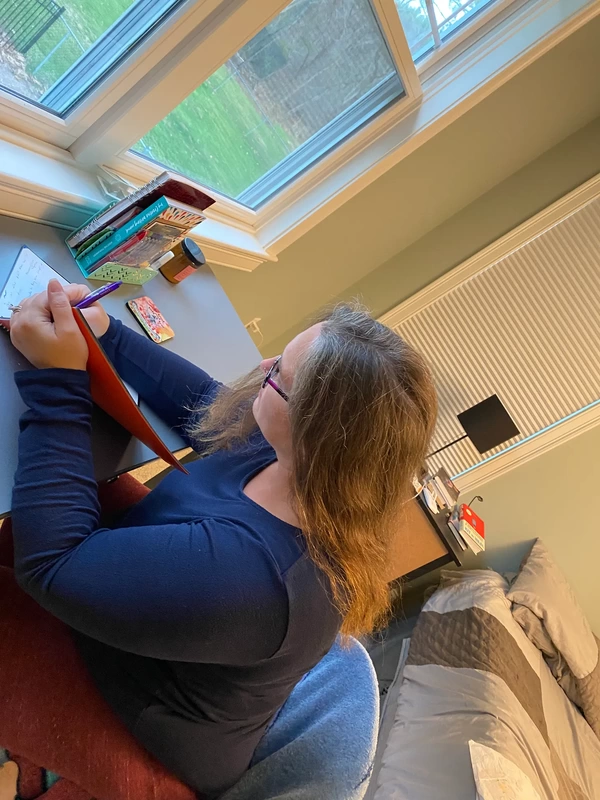
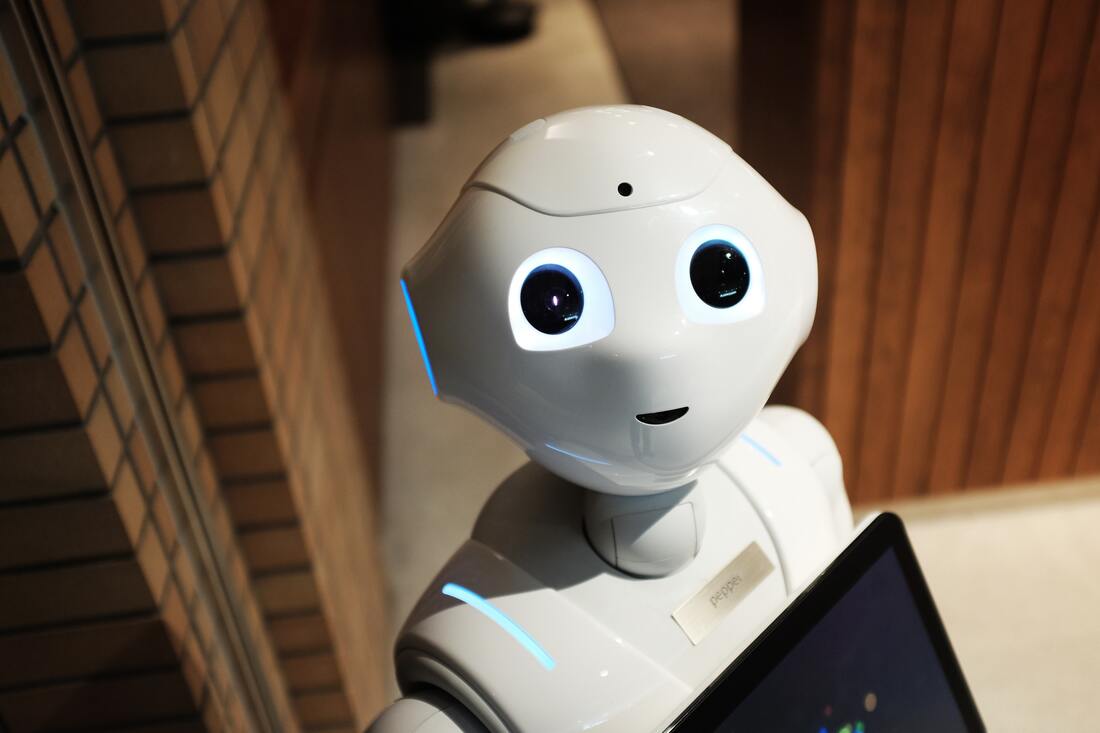
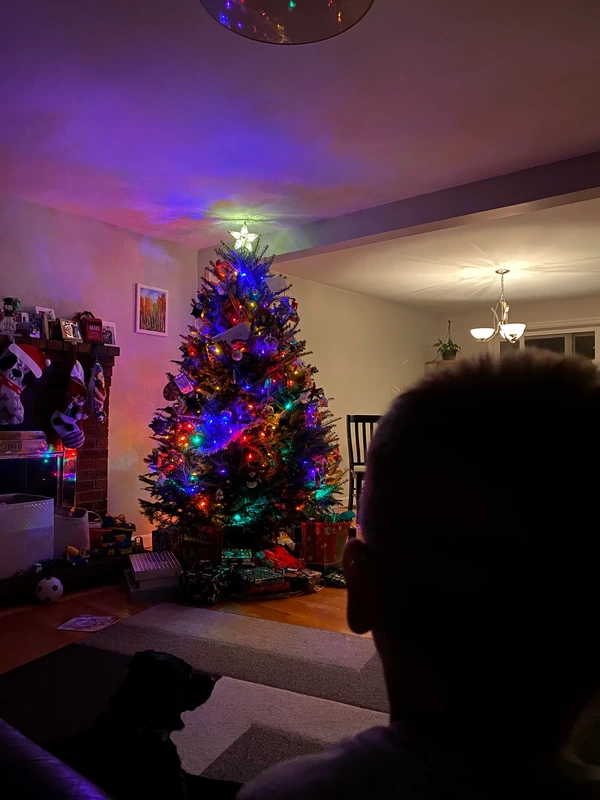
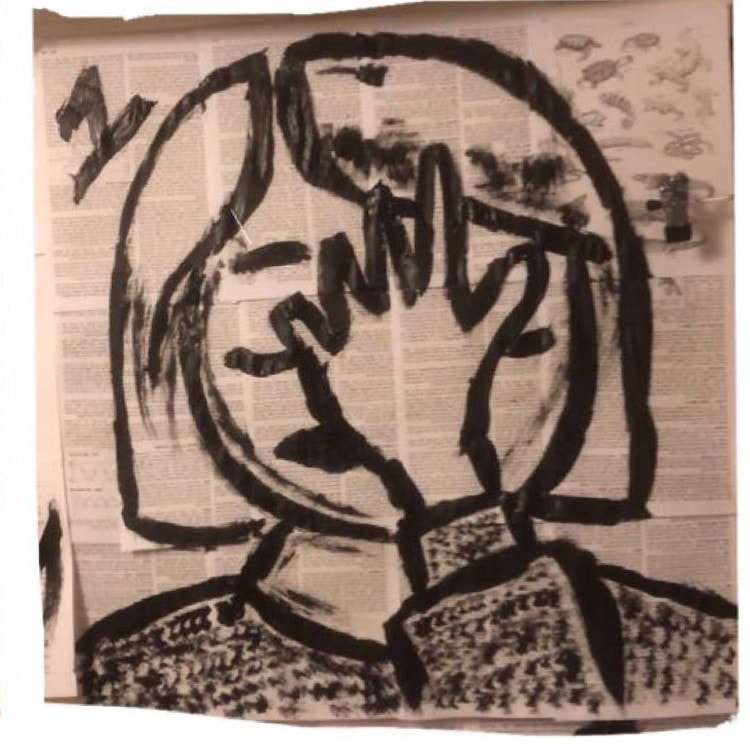
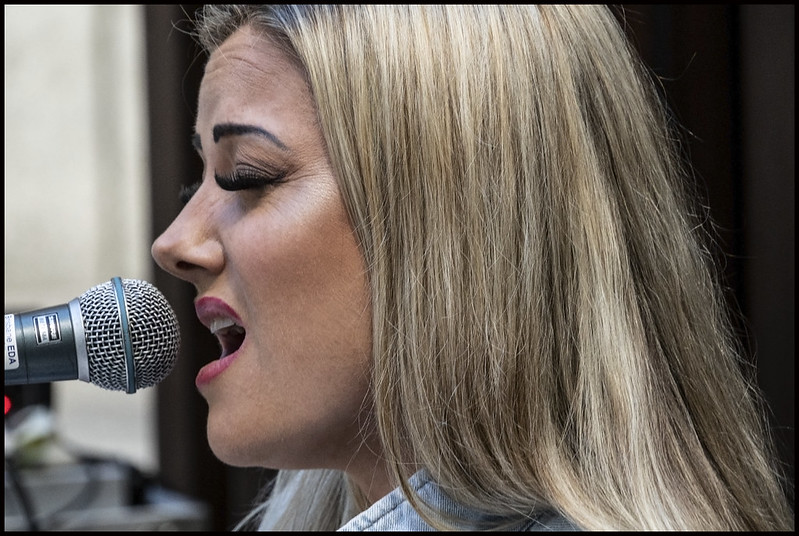
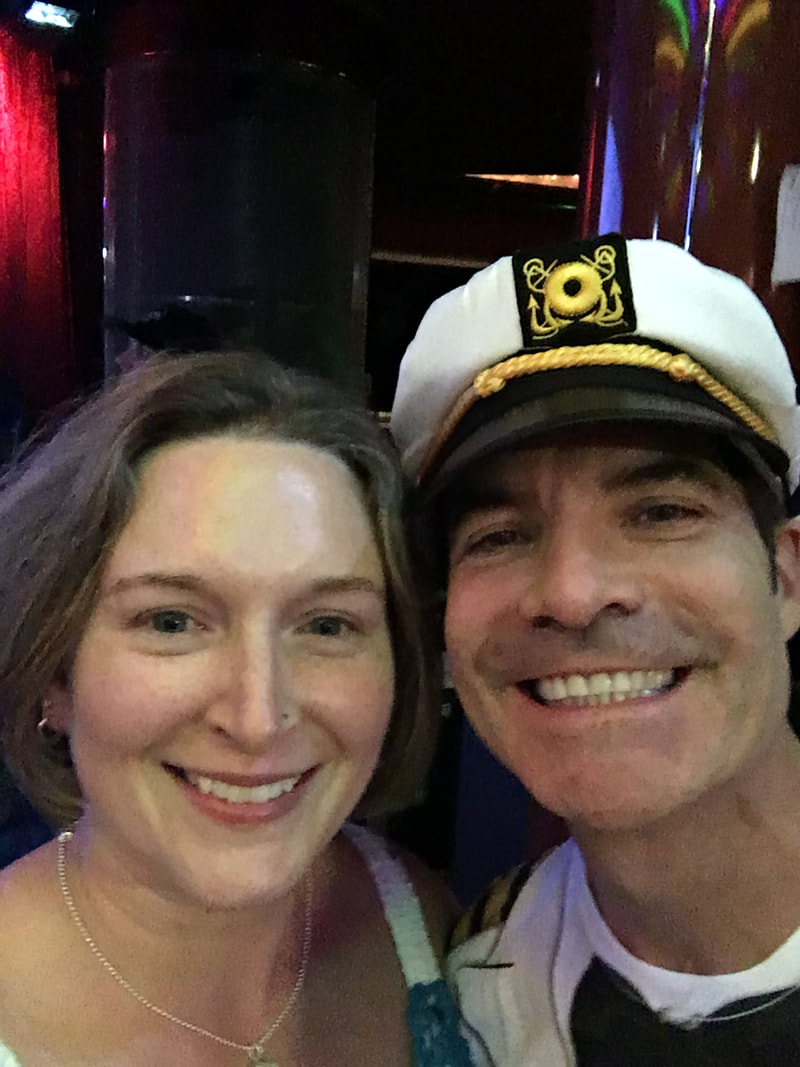
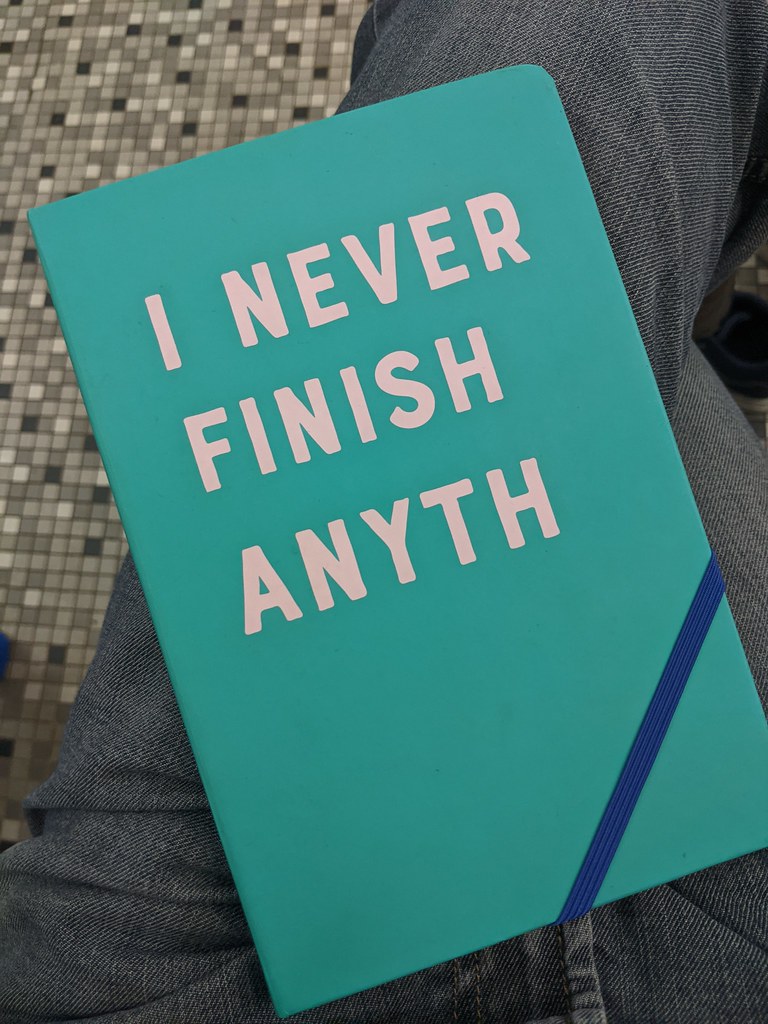
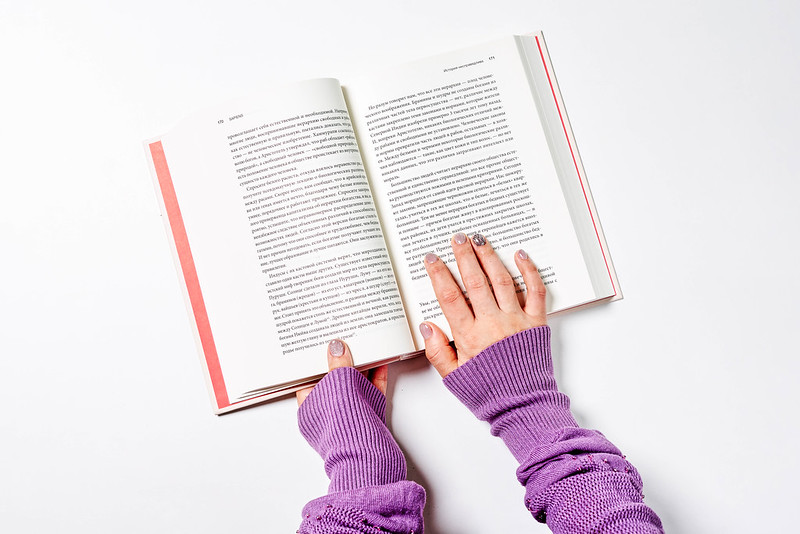
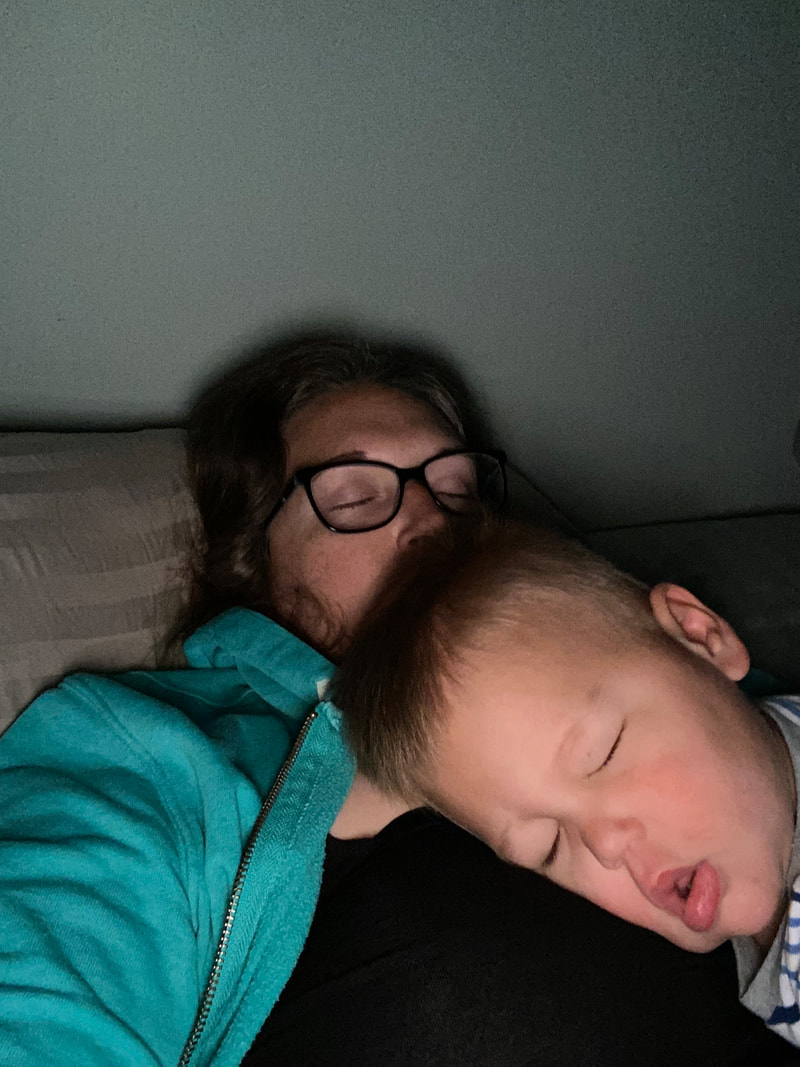
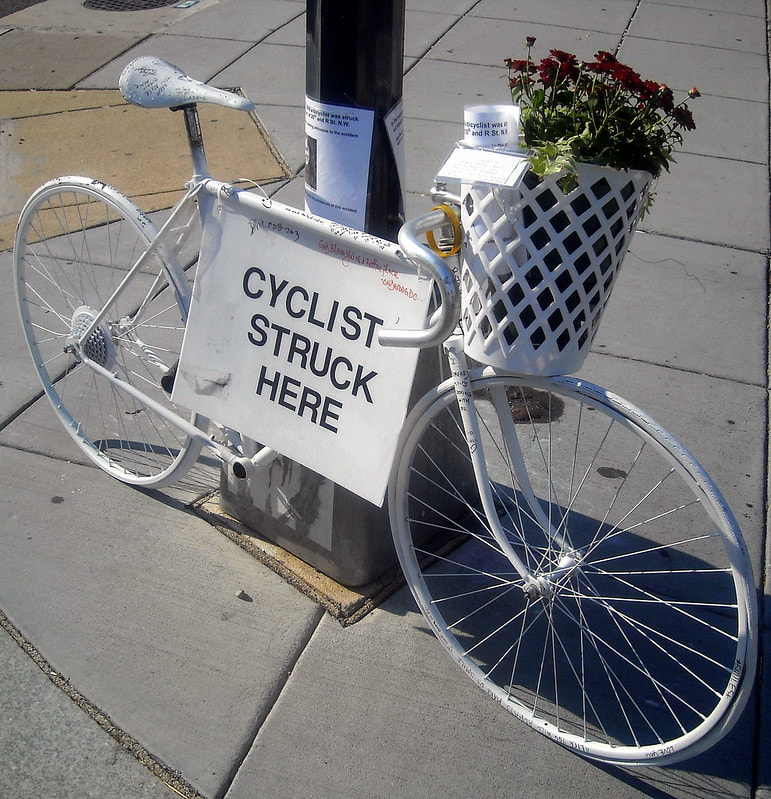
 RSS Feed
RSS Feed